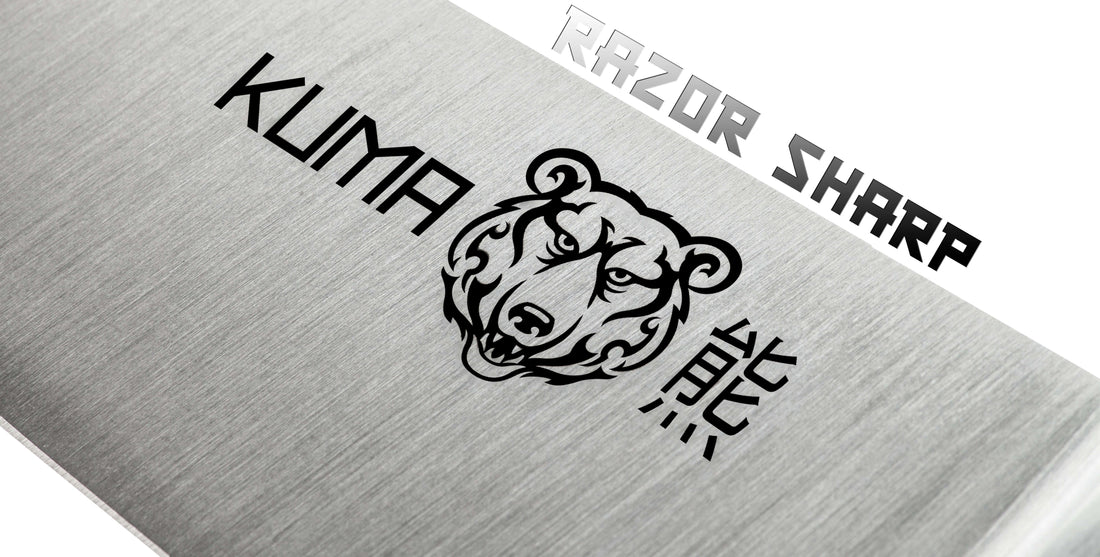
5 Ways to Keep Your Kitchen Knives Sharp and Avoid Dullness.
Share
5 Tips for How to Keep Your Kitchen Knives Sharp and Avoid Dullness.
As a home cook or professional chef, having sharp kitchen knives is essential for efficient and safe food preparation. Dull knives require more force to cut through food, increasing the risk of accidents and resulting in uneven or poor-quality cuts. On the other hand, sharp knives make clean cuts and make cooking tasks faster and more enjoyable. In this article, we'll discuss practical tips for keeping your kitchen knives sharp and preventing them from turning dull.
5 Easy Tips for the Ideal Kitchen Knife Maintenance:

1. How to hone or sharpen your kitchen knife:
Use a sharpening stone or honing rod regularly. A sharpening stone, also known as a whetstone, is a flat stone with a rough surface that is used to sharpen the edge of a knife. Honing rods, also known as steel rods or sharpening steels, are cylindrical tools with a fine surface that is used to straighten and refine the edge of a knife. They often come in either a carbon steel version, a ceramic version, or a diamond coated version. A whetstone and a ceramic/diamond coated honing rod both work by removing a small amount of metal from the blade to create a sharp edge. Meanwhile the carbon steel honing rod works by simply straightening out and realigning the existing edge of the blade.
To use a sharpening stone, wet the stone with water and place it on a stable surface. Hold the knife at a 20-degree angle to the stone and make long, smooth strokes along the length of the blade, starting at the heel and moving towards the tip. Repeat on the other side of the blade. If you're using a honing rod, hold the rod with the handle in one hand and the blade of the knife in the other hand. Place the blade against the rod at a 20-degree angle and draw the blade down the length of the rod, repeating on the other side of the blade.
It's recommended to hone or sharpen your knives every one to three months, depending on how often you use them. If you use your knives frequently, you may need to hone or sharpen them more often.
2. Storing your knives to avoid dullness:
Store your knives properly. Proper storage is crucial for keeping your knives sharp and preventing them from getting damaged. Avoid storing your knives in a drawer with other utensils, as they can knock against each other and dull the edges. Instead, use a knife block or a magnetic strip to keep your knives organized and safe, always attaching the knife to the strip by the spine-side of the blade first and then carefully tilting inwards towards the blade side.
3. The best cutting board to take care of your chef's knife:
Use the right cutting surface. Chopping on a hard surface such as a granite countertop or a glass cutting board can dull your knives quickly. Instead, use a wooden or plastic cutting board to protect the blade. Avoid using a serrated knife on a hard surface, as this can damage the teeth.
4. Is it safe to cut hard items with my kitchen knife?
Avoid cutting through really hard or frozen foods. Very hard or frozen foods can dull your knives quickly, as they require more force to cut through. Instead, thaw frozen foods before cutting them, or use a cleaver to chop through hard ingredients such as bones.
5. Can I put my kitchen knife in the dishwasher?
Avoid dishwashers. While it may be tempting to toss your knives in the dishwasher for easy cleaning, the high heat, harsh detergents and the high velocity of the machine can damage the blade and cause it to become dull. Instead, hand wash your knives with a soft sponge or brush and mild dish soap, and dry them immediately to prevent rust.Conclusion
By following these tips, you can keep your kitchen knives sharp and in good condition for years to come. Regular sharpening and proper care will not only improve your cooking experience, but it will also help you save money on expensive knife replacements.
